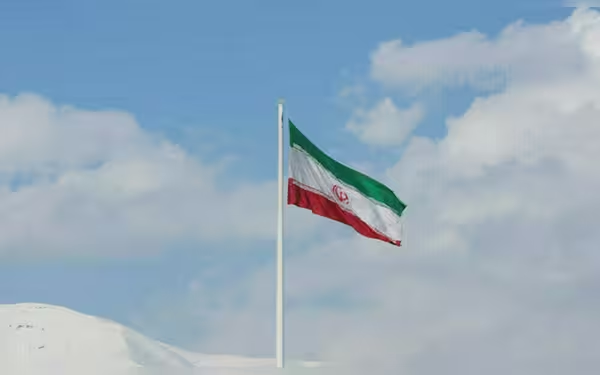Saturday, November 16, 2024 07:40 PM
Iran Condemns US Sanctions on Oil Industry
- Iran labels US sanctions as illegal and unjustified.
- Missile attack on Israel escalates regional tensions.
- US sanctions target Iran's oil exports and shadow fleet.
 Image Credits: brecorder
Image Credits: brecorderIran condemns US sanctions on its oil industry, calling them illegal amid rising regional tensions following a missile attack on Israel.
In recent developments, Iran has vocally condemned the expansion of United States sanctions targeting its oil industry, labeling them as "illegal and unjustified." This reaction follows a missile attack by Tehran on Israel earlier this month, which has heightened tensions in the region. The Iranian foreign ministry, represented by spokesman Esmail Baghaei, has defended the missile strike as a legitimate act of self-defense, asserting Iran's right to respond to what it perceives as aggressive actions from the United States.
The sanctions imposed by the United States on Friday are part of a broader strategy to curb Iran's oil exports, which are crucial to its economy. The U.S. Treasury Department has specifically targeted what it describes as Iran's "shadow fleet"—a network of ships allegedly involved in circumventing existing sanctions to sell Iranian oil. As a result, at least ten companies and seventeen vessels have been designated as "blocked property," effectively freezing their assets in the U.S.
In addition to these measures, the U.S. State Department has announced sanctions on six more firms and six ships for their involvement in significant transactions related to Iranian petroleum products. Baghaei has criticized these actions, arguing that they will only serve to empower Israel, allowing it to continue its military operations and threatening regional stability.
Baghaei emphasized that the "policy of threats and maximum pressure" from the U.S. will not deter Iran from defending its sovereignty and national interests. He expressed concern that the sanctions would enable further violence against innocent civilians and destabilize the region. This statement comes at a time when oil prices are surging, reaching their highest levels since August, as the world anticipates Israel's response to the missile attack.
Moreover, U.S. President Joe Biden has advised Israel against targeting Iran's oil infrastructure, recognizing the potential for escalation in an already volatile situation. Iran's foreign minister, Abbas Araghchi, has also issued a stern warning, stating that any attack on Iranian infrastructure would provoke a stronger retaliation.
The ongoing conflict and the imposition of sanctions highlight the complex interplay of international relations, national security, and economic interests. As tensions rise, it is crucial for all parties involved to seek diplomatic solutions to avoid further escalation. The situation serves as a reminder of the delicate balance that exists in global politics, where actions taken by one nation can have far-reaching consequences for others. Understanding these dynamics is essential for anyone interested in the future of international relations and the stability of the Middle East.













